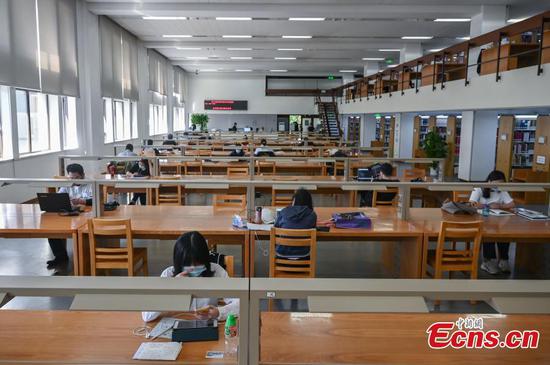Findings could aid in the prevention of metabolic disorders among the Chinese
Chinese researchers have completed a large-scale study on deep whole genome sequencing and genetic bases of metabolic traits in individuals in China, which will help provide precise prevention and intervention of metabolic disorders among the Chinese.
The study, published in the scientific journal Cell Research on April 30, is part of the China Metabolic Analytics Project, led by the endocrinology department of Ruijin Hospital in Shanghai in cooperation with 29 research institutions and hospitals across the country.
Researchers who contributed to the paper entitled The ChinaMAP Analytics of Deep Whole Genome Sequences in 10,588 Individuals analyzed sequences of people from eight ethnic groups in 27 provinces and municipalities in China.
According to Wang Weiqing, one of the corresponding authors of the paper and director of the endocrinology department at Ruijin Hospital, the team has constructed high-quality Chinese population genetic variation data, analyzed Chinese population structure and completed genomic characteristics comparison and pathogenic variation analysis.
"It is of unprecedented significance as we study the genomic characteristics of Chinese people by our own instruments, platforms and methodology," said Cao Ya'nan, one of the lead authors of the paper who also works in the hospital's endocrinology department.
Such a database comprising a large sample of the Chinese population is of great value to genetic disease screening and prevention in China, experts said.
For a long time, research on Chinese genetic diseases usually relied on databases of foreign populations, which can be misleading as genome sequences vary among different ethnic groups and people living in different regions.
For example, the research found that the number of Chinese who carry some disease-causing gene variants are significantly higher than that of Europeans and Americans and vary from region to region.
That includes gene variants causing congenital hypothyroidism, referring to thyroid hormone deficiency present at birth, and chronic pancreatitis, or long-lasting inflammation of the pancreas.
There is also data regarding the number of carriers of a gene variant that causes alcohol redness. Poor alcohol metabolism among Chinese people is much higher than that of people from other nations.
Experts added that the mutation of the gene is also a contributing factor to esophageal cancer, so a person who experiences alcohol redness should drink less.
"These differences suggest that a high-quality database based on large samples of Chinese people is vital to genetic counseling and analysis and benefits clinical guideline stipulation," Cao said.
In addition, the research revealed for the first time that the Han ethnic group can be categorized into seven subgroups geographically, such as the Han of the north, including Beijing and Tianjin, and the Han of Gansu and Shaanxi provinces.
In comparison, the genetic characteristics of the Man ethnic group is similar to that of the Han community in the north, while the Hui ethnic group shares a similar genome sequence to that of Han people in the northwest and north, which is partly related to migration in history.
Further, the research analyzed the genetic characteristics of metabolism. With regard to alcohol metabolism, people in northern China are found to have higher alcohol tolerance genetically than those living in the south.


















































